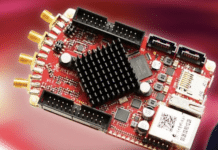The processor could potentially double chip performance while reducing costs of related chip production by more than 50 percent, Alibaba said.

Open source technologies are becoming an increasingly attractive option to Chinese companies amid the ongoing US-China trade war.
Chinese e-commerce giant Alibaba would no longer need to license any core from ARM or any other foreign companies because it has now designed its own core based on the RISC-V ISA.
Alibaba’s chip-making subsidiary Pingtouge on Thursday launched its first product: an open source chip processor, dubbed as XuanTie 910.
The processor uses RISC-V, an open-source hardware instruction set architecture (ISA) – key programming infrastructure that decides how a device functions.
It can be used in designing chips for 5G telecommunications, artificial intelligence as well as autonomous driving.
The processor could potentially double chip performance while reducing costs of related chip production by more than 50 percent, Alibaba said.
XuanTie 910’s code to be made available on GitHub soon
The processor will soon be available for commercial sale, without providing a timetable or price range, the company told Chinese daily Caixin.
To promote innovation, Pingtouge will soon allow global developers to download some of XuanTie 910’s code for free on GitHub.
In May, the US government blacklisted Huawei, blocking the Chinese telecommunications giant from buying American products without its approval.
Following the US sanctions, UK-based chip-designer ARM was also forced to cut ties with Huawei as the company utilizes American technology in its products.
RISC-V is a globally recognized open-source standard and is not covered by the US export restrictions. This means Chinese firms like Huawei can use it without violating any export restrictions.



































































